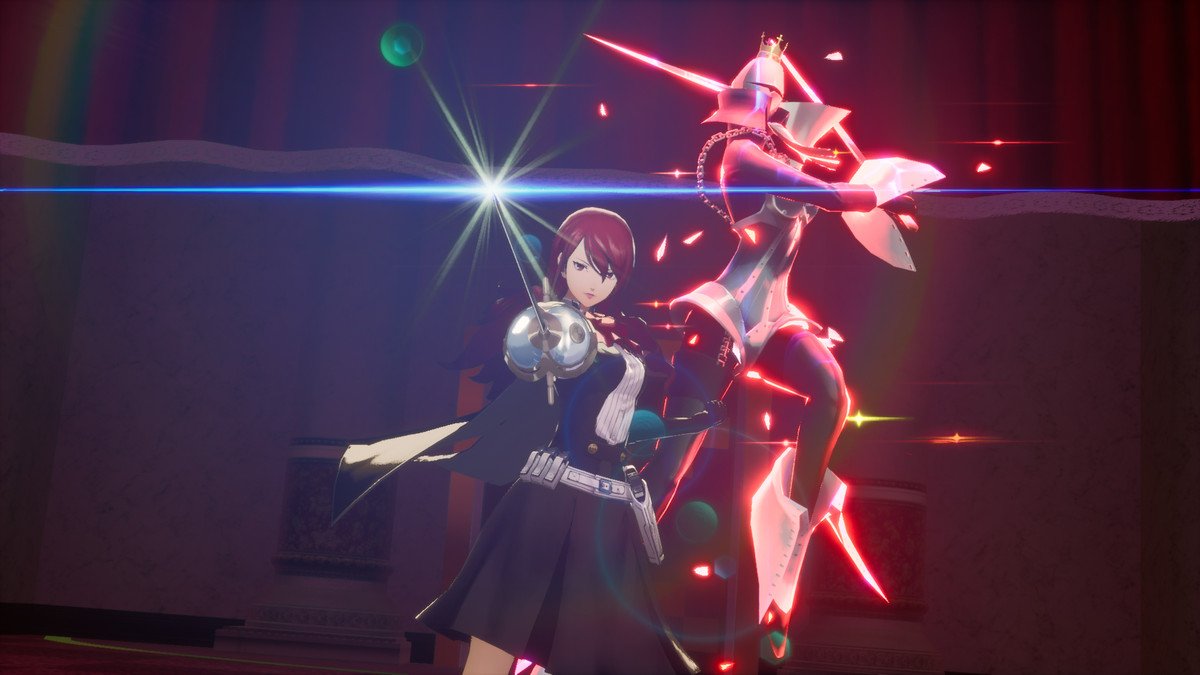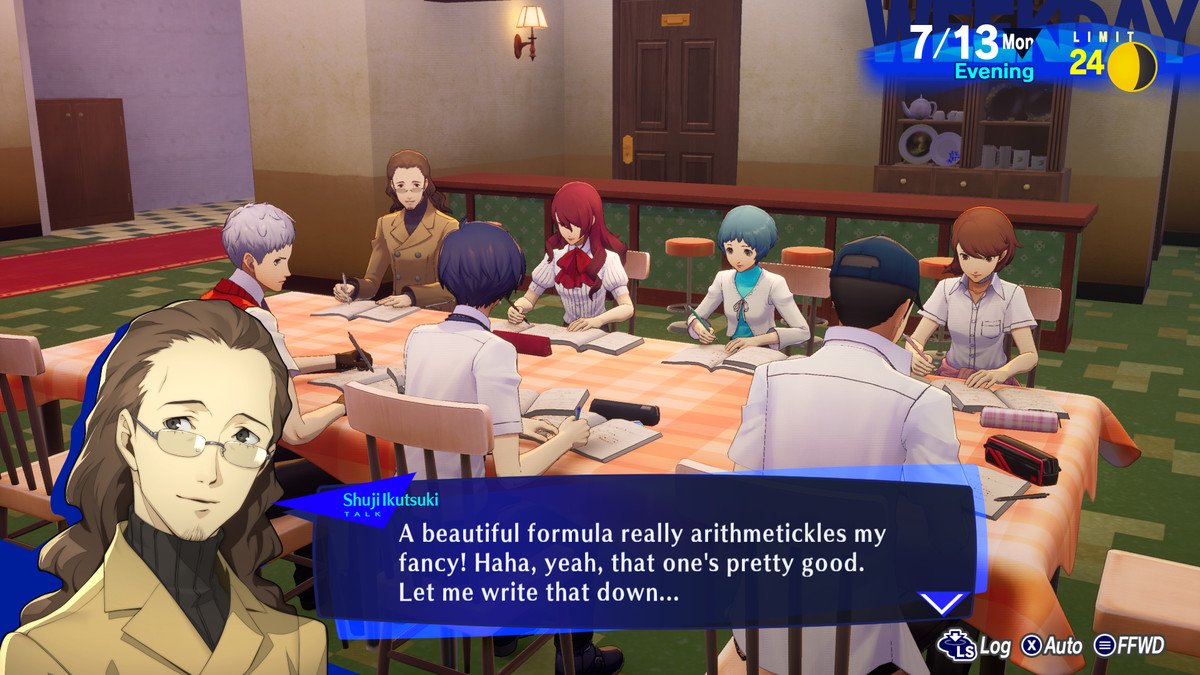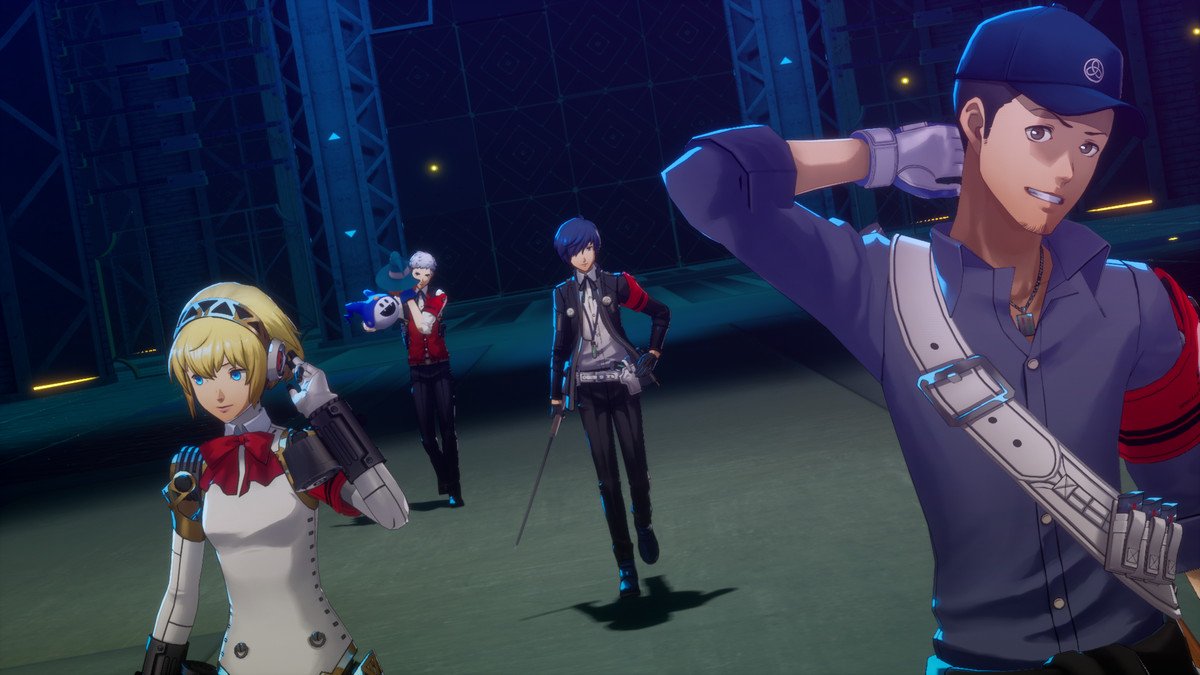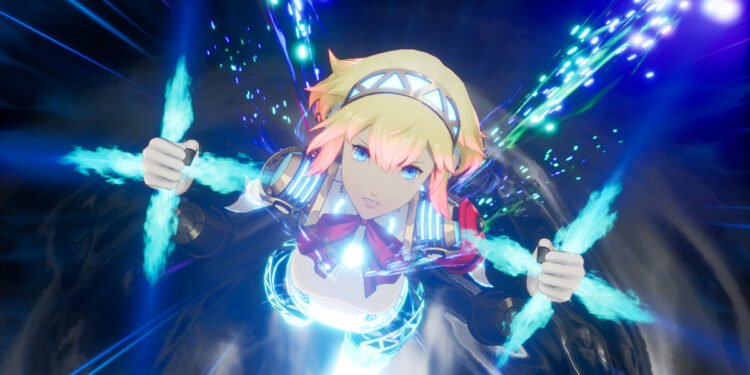Persona 3 was always a bit of a black sheep. It established the foundation for the RPG series we know today, but its oppressive ambiance and bleak storylines were a far cry from the flash and verve of the games that followed. With Persona 3 Reload, Atlus revisits the past, but it does so in the shadow of the series’ most approachable game — Persona 5 looms over its predecessors still, and Reload makes that more apparent than ever.
Reload begins with a high schooler experiencing something called “the Dark Hour.” During this 25th hour each day, streets become filled with coffins and enemies called Shadows, while a towering structure called Tartarus looms over the island. When you’re not attending school and establishing bonds with people in a calendar-based structure, you ascend Tartarus with the help of the Specialized Extracurricular Execution Squad (SEES), exploring floor by floor. During nights with a full moon, you fight against a variety of otherworldly bosses.
Persona 3 Reload is, by and large, faithful to its roots. The main story events, as well as characters and locations, are all present. It’s important to note that his modern rendition is built upon the original release, thus lacking the main additions of its newer versions. (Persona 3 FES, for example, has a playable epilogue that expands the story beyond the original ending, while Persona 3 Portable lets you choose a female protagonist, with her own dialogue options and relationships to nurture.)

Image: Atlus/Sega via Polygon
However, Reload does take some liberties: New activities help to break up the calendar-based schedule of Persona 3, which can be monotonous or comforting, depending on whom you ask. Purchasing software programs at a net café and URLs from an informant make for fun use of the new desktop computer in the dorm’s lounge, and I loved watching a documentary about a wolf pack with Koromaru, the canine member of the group. These activities are packed with charm and funny moments. If you’re like me and you only experienced the Portable version of Persona 3 beforehand, in which a more hands-off structure can make it feel like a visual novel with occasional combat, Reload’s better pacing should feel like a day-and-night difference.
Since this is an RPG, and also a Persona game, said social outings net you with an array of rewards, feeding into Reload’s new character synergies. It’s here where the influence of Persona 5 — and Persona 5 Royal — permeates this remake. There’s a makeshift garden on the rooftop of the dorm where you can plant veggies and produce items to use during combat. Additionally, tending to the garden with different characters amplifies the effects of the harvest. Over at the lounge, you can meal prep in the kitchen, earning similar buffs for upcoming battles. Aside from items and points toward your social stats, subsequent encounters eventually grant the characters passive abilities, called Characteristics, which are related to the new Theurgy system.
As you fight through the floors of Tartarus, Persona 3’s sprawling network of dungeons, Theurgy abilities allow for a special attack after gradually meeting certain criteria — exploiting enemy weaknesses with Koromaru, using support skills with fellow school student Yukari, and so on. Once the meter is full, you can activate said power, which plays out in a flashy cutscene à la Royal’s Showtime attacks.

Image: Atlus/Sega via Polygon
On paper, these additions are a testament to how far the Persona series has come, refining past mechanics with each entry over the years. In an interview with 4Gamer, director Takuya Yamaguchi said that Persona 5 has become the standard for how the series plays for current fans. This influenced the design of Reload during development, but it can also be seen elsewhere in Atlus’ catalog. Soul Hackers 2 follows a similar formula, yet does too little to build upon the cult status of its predecessor. Shin Megami Tensei 5, instead, was dealt a touch-up for fans with modern RPG sensibilities to pick up and play. But it doesn’t shy away from tradition — it’s as punishing and combat-centric as the SMTs before it.
In contrast, the influence of Persona 5’s conceits leaves Persona 3 Reload in a state of inner conflict. The story, and themes, do most of the heavy lifting in maintaining a semblance of unique identity. It’s striking yet memorable to explore such a bleak world, with high schoolers constantly shown shooting themselves in the head with (fake) guns, a police officer serving as the main weapons vendor, and character arcs that don’t exactly result in happily-ever-after outcomes. Sadly, the tone is constantly compromised by a presentation that’s too colorful, flashy, and refined for this material, pushing for spectacle and fidelity over grit or atmosphere. It brings sophistication to an ambiance originally renowned for its grim trappings.
This obsession with modernization also rectifies the lack of hand-holding in the original, which made for interesting friction that discouraged min-maxing. When looking at the overworld or your minimap, most social links and requests are automatically marked for you. If you’re unsure of what to do after school, your phone now acts like the one in Persona 5 or even Grand Theft Auto 5, listing SMS messages from confidants inviting you to hang out or mailing-list ads from restaurants reminding you of part-time jobs and other activities. If interacting with more than one menu sounds exhausting, you can just select a notification and automatically fast-travel to the spot. Sure, social outings were often obtuse originally, but there’s little sense of discovery now — Atlus has overcompensated and made things too simple. Like Royal, everything becomes a checklist to promptly tackle and move on.

Image: Atlus/Sega via Polygon
The dungeon-crawling of Tartarus, perhaps Persona 3’s most outdated aspect, is shinier now, but just as empty and repetitive to navigate. Characters now talk to one another more often, and there’s some artificial variety added in with breakable objects that sometimes grant loot. But everything else has been streamlined. The fatigue system is gone, which means nothing is stopping you from tackling new sets of floors in the dungeon on the first day they’re unlocked. While your crew doesn’t gain experience unless they’re in your party, grinding isn’t as necessary anymore. After spending a new in-game currency to open special chests, there’s a chance to unlock an additional room in which you can boost the level of two characters at a time to catch up with the rest.
In recent years, Atlus seems determined to remove a large part of the character from the series in its obsessive pursuit to capitalize on Persona 5. The success of the fifth entry is well regarded, but its popularity has resulted in a tidal wave, retroactively rippling through its lineage with mixed results. Regardless of how many refinements are made, the fatigue of Persona 5-likes is starting to set in. It’s unfortunate that Persona 3 is being brought to the spotlight under these new standardized criteria — after all these years, it’s becoming just another sheep in the herd.
Persona 3 Reload will be released on Feb. 2 on PlayStation 4, PlayStation 5, Windows PC, Xbox One, and Xbox Series X. The game was reviewed on Xbox using a pre-release download code provided by Sega. Vox Media has affiliate partnerships. These do not influence editorial content, though Vox Media may earn commissions for products purchased via affiliate links. You can find additional information about Polygon’s ethics policy here.























































